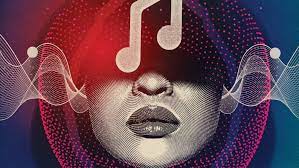Music is an enigmatic force that has captivated humanity for millennia. From the ancient rhythms of drums echoing through tribal gatherings to the symphonic masterpieces performed in grand concert halls, music pix has woven itself into the very fabric of human existence. It transcends language barriers, cultural divides, and geographical boundaries, speaking to the soul in a universal tongue.
At its core, music is a form of expression—a sonic landscape where emotions, thoughts, and stories intertwine. It has the remarkable ability to evoke profound emotions, stirring memories, and igniting passions within us. Whether it’s the melancholy strains of a blues guitar, the uplifting melodies of a pop anthem, or the intricate harmonies of a classical symphony, music has a unique power to resonate with individuals on a deeply personal level.
But what is it about music that makes it such a potent force in our lives? Neuroscientists have long been fascinated by the effects of music on the brain, uncovering its ability to stimulate various regions associated with emotion, memory, and reward. Studies have shown that listening to music can trigger the release of dopamine, a neurotransmitter linked to pleasure and motivation, leading to feelings of euphoria and even physical responses such as chills or tears.
Moreover, music has been found to have therapeutic effects, offering solace and healing to those struggling with mental health issues such as anxiety, depression, and PTSD. Music therapy, a practice that utilizes music to address emotional, cognitive, and social needs, has gained recognition as a valuable tool in healthcare settings, aiding individuals in their journey towards recovery and self-discovery.


